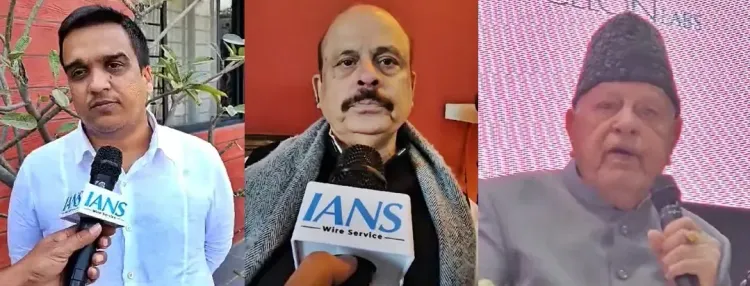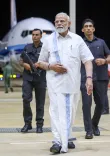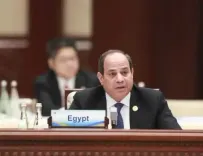Gujarat's Landmark UCC Initiative: BJP Advocates Equality, Opposition Calls It a Political Game

Synopsis
Key Takeaways
- Gujarat is drafting a state-level UCC.
- The initiative aims for equality among all citizens.
- The committee will report in 45 days.
- Uttarakhand's UCC serves as a model.
- Political opposition claims it's a distraction from national issues.
New Delhi, Feb 4 (NationPress) In a historic and bold initiative, Gujarat's Chief Minister Bhupendra Patel has revealed plans to establish a five-member committee tasked with drafting a state-level Union Civil Code (UCC). This significant action, heralded by the state's leadership as one that will embody the spirit of the constitution, aims to foster equality and unity for all citizens in Gujarat, regardless of their religious affiliations.
Gujarat’s Home Minister, Harsh Sanghavi, highlighted that the introduction of UCC will cultivate harmony and equality by ensuring equal rights for all citizens. He asserted that UCC encapsulates the essence of the Indian Constitution, intending to unify varied communities within a singular framework.
In an interview with IANS, Sanghavi outlined clear expectations from the newly-formed committee, which will be led by retired Supreme Court Justice Ranjana Desai. The committee, comprising four additional members, is charged with delivering a comprehensive report on the UCC within the coming 45 days, considering the rights of all communities and societal segments in Gujarat.
Sanghavi also pointed to Uttarakhand’s recent adoption of the UCC as a benchmark for the country. On January 27, 2025, Uttarakhand became the first Indian state to implement a UCC, setting a precedent for Gujarat and other states to emulate. Gujarat's leadership is hopeful that this endeavor will lay the groundwork for a nationwide movement, possibly reshaping the nation’s legal landscape regarding personal laws.
Nonetheless, Gujarat's daring initiative has ignited considerable dissent from political factions, notably from parties like the National Conference and Congress. Critics argue that the BJP is leveraging the UCC discourse as a distraction from more urgent national issues.
National Conference President Farooq Abdullah declined to comment on the issue, urging the government to proceed according to their plans.
Congress MP Tariq Anwar, however, was outspoken in his opposition.
He contended that the BJP's action was a calculated move to divert public focus from critical issues facing the nation. Anwar accused the BJP of inciting division and fostering animosity among different religious communities.
He underscored the necessity for an expansive political dialogue to shape such a pivotal law, advocating for consultations with a broad spectrum of political parties and communities before a nationwide UCC is enacted.
He also noted that such a law could have been created during India’s independence if it were genuinely as uncomplicated as the BJP implies.
Gujarat’s UCC initiative is under scrutiny following Uttarakhand’s groundbreaking action on January 27, 2025. Uttarakhand has already instituted rules under the new law, including guidelines governing live-in relationships and other personal laws. This marks a pivotal transition in India's legal framework, as it strives toward uniformity in personal laws nationwide.
With Gujarat now actively engaged in developing its own UCC framework, the country stands on the brink of a significant transformation in the application of personal laws across the diverse communities that constitute India. While many anticipate that this will foster greater equality, the decision is bound to incite vigorous debates about its ramifications on India’s pluralistic society and whether it will genuinely achieve the desired harmony.
As Gujarat advances in its UCC drafting, the political and social discourse surrounding the law is expected to intensify. While advocates argue that it represents a necessary progression toward a cohesive legal system, detractors remain doubtful, questioning the underlying motivations for its introduction and whether it will unify or further entrench divisions in society. As the committee approaches its 45-day deadline, all eyes will be on Gujarat to observe how this landmark decision unfolds and what consequences it may hold for the rest of India.
In the forthcoming days, Gujarat’s stance on UCC will likely influence future discussions nationwide, raising critical questions about the balance between national unity and cultural diversity, and whether uniformity can realistically be achieved in a nation as varied as India.








